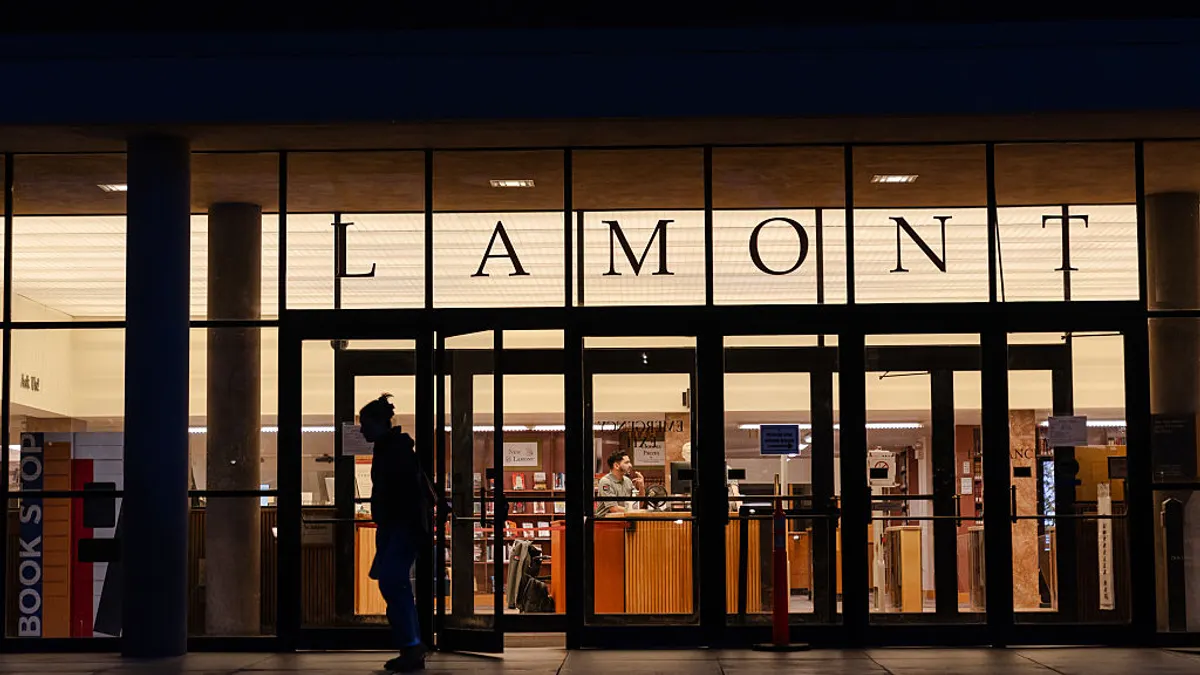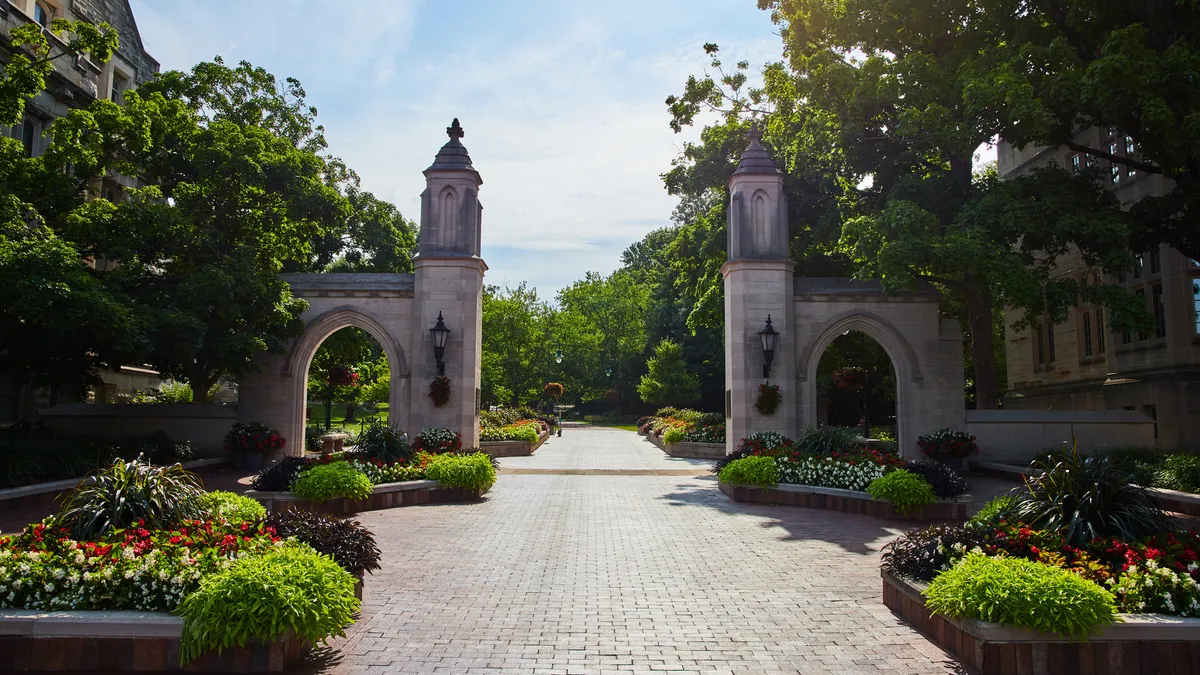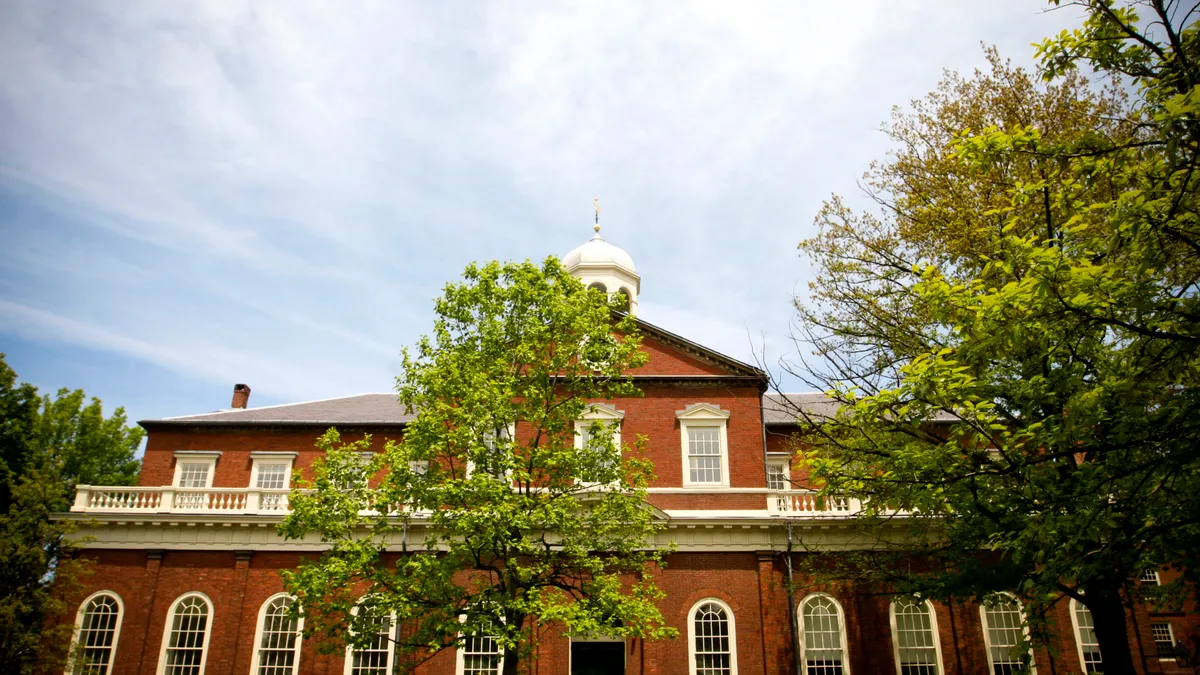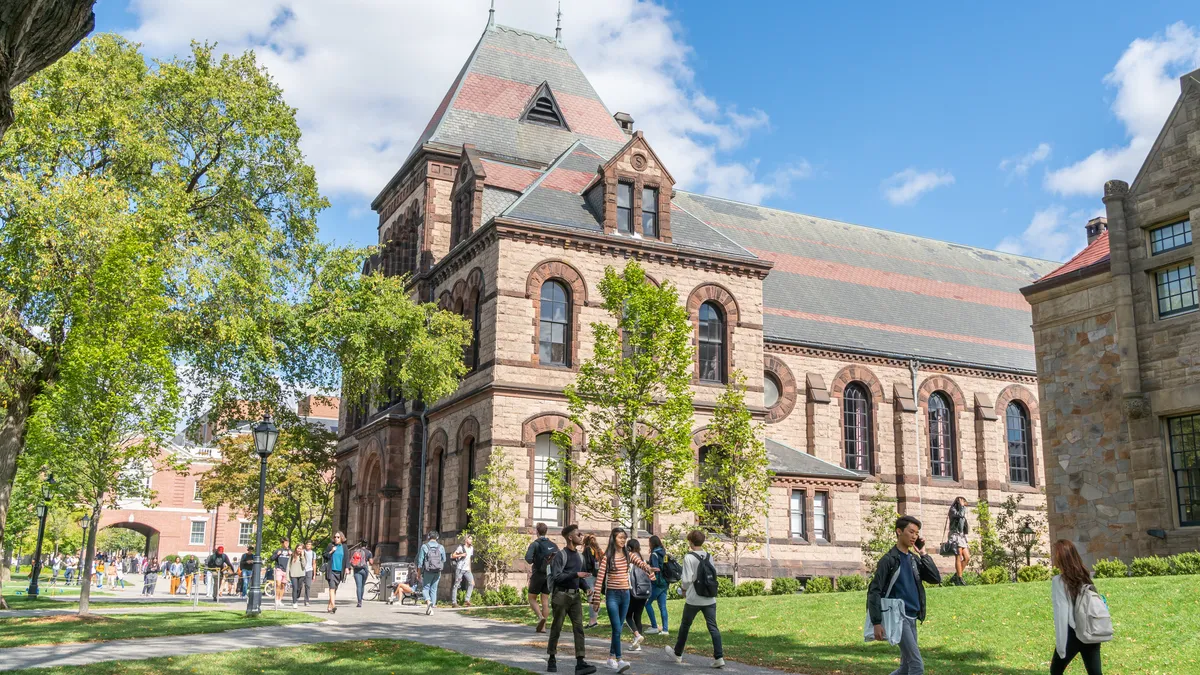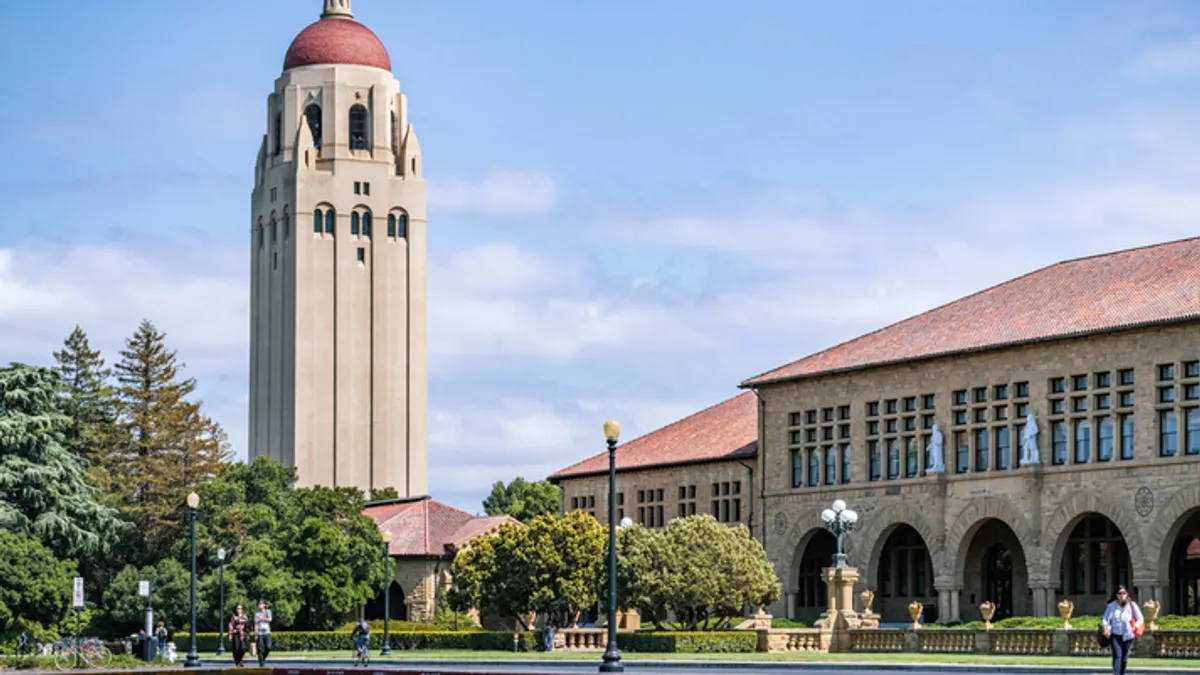For weeks, colleges and leaders across higher ed pressed the U.S. Department of Education to clarify the limits on the $6 billion or so in federal aid Congress set aside in the recent stimulus package for students whose lives were fractured by the coronavirus.
On Tuesday, they got one answer to their questions.
The Ed Department effectively prohibited international and unauthorized students — including participants in Deferred Action for Childhood Arrivals (DACA), a program protecting those who immigrated to the U.S. illegally as children — from getting the federal rescue funding. Colleges are supposed to pass down half of the dollars they receive to students in the form of emergency grants.
The department, in its guidance to colleges, said only students who were eligible for federal financial aid could get the grants funded by the $2.2 trillion Coronavirus Aid, Relief, and Economic Security (CARES) Act that President Donald Trump signed last month.
Backlash from all corners of the sector was swift. Many officials viewed the move as one that conflicted with the department's previous messaging that colleges had extraordinary latitude to distribute the funding, and that whenever possible, it should benefit their neediest students.
Shutting out this population seemed contrary to the latter point. DACA recipients, for instance, are often some of the most financially strained students on a campus, and they are under stress that their legal status in the U.S. could be potentially stripped pending a ruling by the U.S. Supreme Court that is expected soon.
And so the decision creates yet another roadblock for administrators and associations to address during a period of unprecedented financial pressure. They now need to take into account the department's exclusion as they try to help these particularly vulnerable students.
"The objective of this emergency grant funding was to alleviate the financial pain and debt because of COVID-19," said Miriam Feldblum, the co-founder and executive director of the Presidents' Alliance on Higher Education and Immigration, which advocates for lenient immigration policies. "And undocumented students and DACA recipients have even greater obstacles."
The scope of unauthorized students
More than 450,000 unauthorized students are enrolled in U.S. institutions, or about 2% of the overall college population, according to a recent report by the Presidents' Alliance and New American Economy, a think tank. About 216,000 of those students are either eligible for or receive DACA, which means they can't be deported and are authorized to work in the U.S.
These students' challenges are myriad. DACA only covers students for two-year periods and so they need to constantly re-apply for the program, which the Obama administration launched in 2012. Trump has also tried to end DACA, prompting the legal challenges that ran up to the Supreme Court. Its ruling is expected by June.
Unauthorized students have been hit especially hard during the pandemic. About 80% of 1,600 of them surveyed by the TheDream.US, a national scholarship group for unauthorized students, indicated they faced some sort of income loss related to the coronavirus.
Many unauthorized students were also likely hamstrung as the coronavirus forced colleges to shift instruction online, meaning those without laptops or an adequate internet connection needed to find accommodations, Feldblum said. Institutions also largely shuttered dorms, leaving unauthorized students and others with inconsistent off-campus lodgings to scramble. These students and their families also can't access other federal and even state relief, separate from the CARES grants, as other students can, she said. Some immigrants don't qualify for the $1,200 federal stimulus check and in some states also can't access unemployment benefits.
The educational provisions of the CARES Act meant to ease some of these problems, as the student grants can be applied to everything from food and housing to technology and healthcare, the law states. The department determined how much colleges would receive of the $12 billion or so in CARES funding based on their full-time student headcount, weighted heavily toward those that enroll more Pell Grant recipients, a measure of financial need at an institution.
Unauthorized students were included in that enrollment calculation but can't get any of the money, a dynamic that raised eyebrows among observers.
"We believe it's inconsistent with congressional intent," David Baime, senior vice president for government relations and policy analysis for the American Association of Community Colleges (AACC), said of the Ed Department's decision.
Ed Department defends itself
The department has cited language in the CARES Act as the reason unauthorized and international students are barred from funding, though experts' reviews of the law found no such restrictions.
"The CARES Act makes clear that this taxpayer funded relief fund should be targeted to US citizens, which is consistently echoed throughout the law," department spokesperson Angela Morabito wrote to Education Dive in an email earlier this week.
Asked for clarification as to which sections of the law expressly forbid certain students from receiving the money, Morabito pointed to parts that reference two types of federal financial aid: Pell eligibility and Title IV funding. One provision Morabito identified simply lays out that the stimulus money will be distributed through the same systems as traditional financial aid.
"They're basically saying any reference to Title IV suggests only Title IV students should get the money," Clare McCann, deputy director for federal higher ed policy at think tank New America, wrote to Education Dive in a text message, "which requires a very creative read."
Baime agreed the decision to exclude students rests with the department and is not based in the law. As AACC and other higher ed groups lobby Congress for more higher ed funding in the next stimulus package, he said they will ask lawmakers to help unauthorized and DACA students specifically. AACC, under the umbrella of the American Council on Education, has requested nearly $47 billion in future legislation.
He said his group will also push the department to undo the restriction on unauthorized and international students.
How schools are adjusting
Despite the department's ban, colleges have avenues for getting money to these students. The second wave of stimulus funding, another $6 billion that Education Secretary Betsy DeVos made available this week, allows colleges to reimburse themselves for coronavirus-related expenses. If they spent money on new laptops or other technology for students, unauthorized or otherwise, their portion of the money can be used to cover the costs.
Colleges are also falling back on their existing emergency aid funds to help low-income students. The University of California, Berkeley, confirmed it is giving grants to students who have lost wages, or have new technology, transportation or relocation costs because of the virus, said spokesperson Janet Gilmore.
Officials at the University of California, Davis, have identified roughly 700 unauthorized students on campus, said Mayra Llamas, executive director of the university's Community Resource and Retention Centers, which promotes educational equity on campus.
Housed in that office is the AB540 and Undocumented Student Center, which caters specifically to DACA recipients and other immigrant students. The center runs a $100,000 or so emergency grant fund that it has relied on heavily since the pandemic hit, Llamas said. Administrators have given out grants from that pot of money ranging from $500 to $1,500 each day, she said.
UC Davis, which is due to receive $33.9 million in CARES dollars, never banked solely on that funding to support students, Llamas said, adding that she feels the university is already well-equipped to take care of them.
"We planned with our current resources that we have, even before the act was voted on," she said of helping unauthorized students. "But it would have been nice. It would have been really nice."






